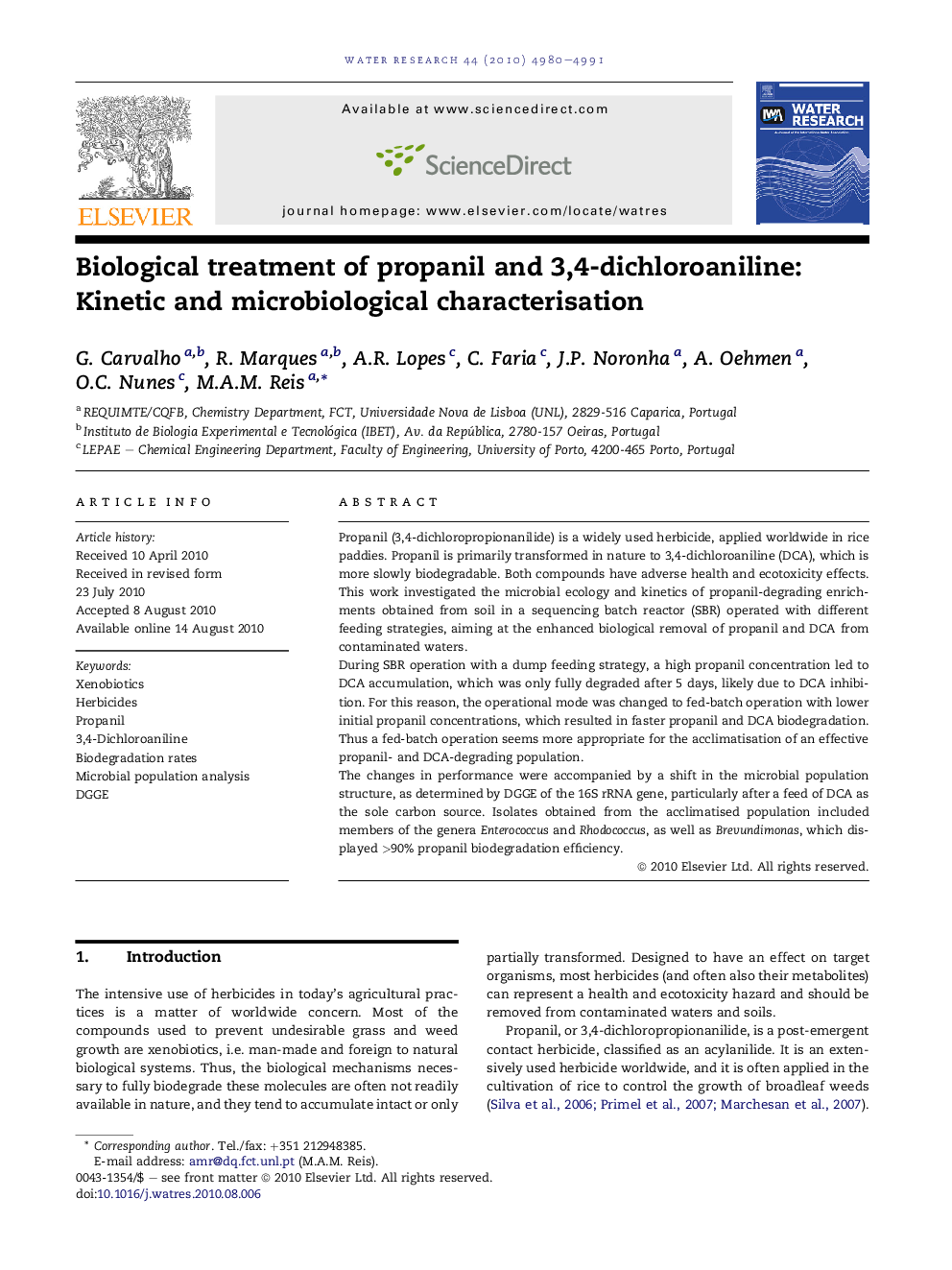| Article ID | Journal | Published Year | Pages | File Type |
|---|---|---|---|---|
| 4483552 | Water Research | 2010 | 12 Pages |
Propanil (3,4-dichloropropionanilide) is a widely used herbicide, applied worldwide in rice paddies. Propanil is primarily transformed in nature to 3,4-dichloroaniline (DCA), which is more slowly biodegradable. Both compounds have adverse health and ecotoxicity effects. This work investigated the microbial ecology and kinetics of propanil-degrading enrichments obtained from soil in a sequencing batch reactor (SBR) operated with different feeding strategies, aiming at the enhanced biological removal of propanil and DCA from contaminated waters.During SBR operation with a dump feeding strategy, a high propanil concentration led to DCA accumulation, which was only fully degraded after 5 days, likely due to DCA inhibition. For this reason, the operational mode was changed to fed-batch operation with lower initial propanil concentrations, which resulted in faster propanil and DCA biodegradation. Thus a fed-batch operation seems more appropriate for the acclimatisation of an effective propanil- and DCA-degrading population.The changes in performance were accompanied by a shift in the microbial population structure, as determined by DGGE of the 16S rRNA gene, particularly after a feed of DCA as the sole carbon source. Isolates obtained from the acclimatised population included members of the genera Enterococcus and Rhodococcus, as well as Brevundimonas, which displayed >90% propanil biodegradation efficiency.
